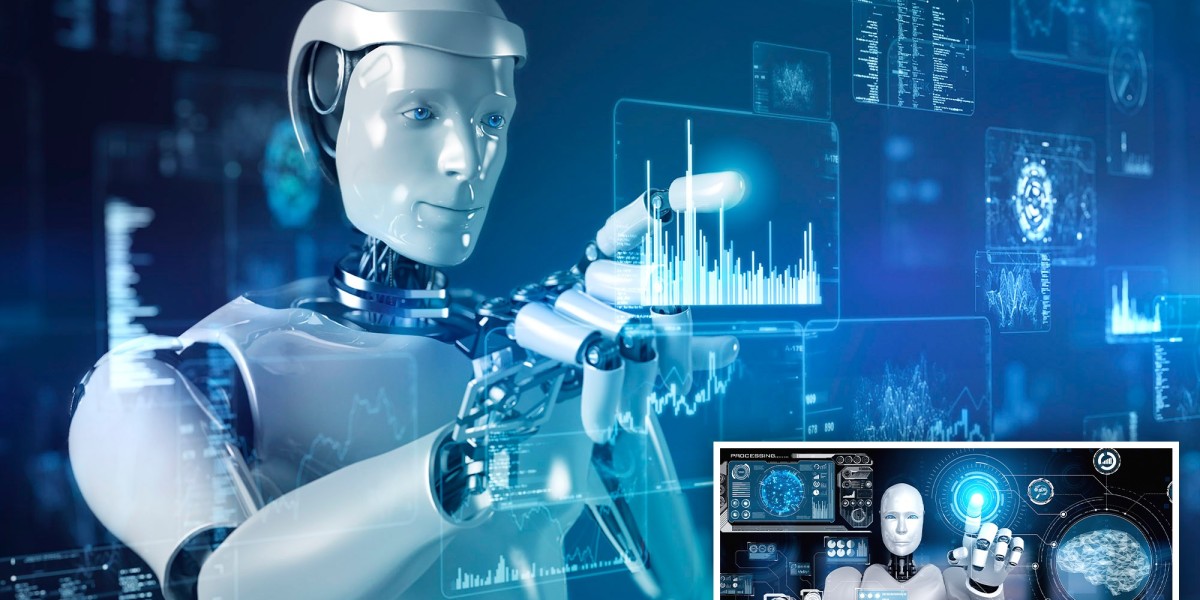In recent years, artificial intelligence (AI) technology has made significant advancements, sparking debates and discussions about its potential impact on society. Will AI eventually take over the world, or is this technology just another tool for humans to use? Let’s explore the rise of AI, understand its capabilities, and examine its current applications in everyday life.
The Rise of Artificial Intelligence
Artificial intelligence is a branch of computer science that aims to create intelligent machines capable of mimicking human behavior and cognitive functions. Over the past few decades, AI has evolved from simple algorithms to complex systems that can learn, reason, and make decisions autonomously.
With the advent of big data and advancements in machine learning algorithms, AI has been integrated into various industries, including healthcare, finance, transportation, and entertainment. From self-driving cars to virtual assistants, AI technologies are shaping the way we live and work.
Understanding AI: Definitions and Capabilities
Broadly speaking, there are two types of AI: wide AI and narrow AI. Weak AI, or narrow AI, is made to accomplish particular jobs or provide solutions to particular issues. This kind of AI powers applications such as recommendation systems, image classification, speech recognition, and picture classification are made possible by this kind of AI.
On the other hand, general AI, or strong AI, refers to machines that possess human-like intelligence and cognitive abilities. While general AI remains a distant goal, researchers continue to push the boundaries of AI technology, developing systems that can learn, adapt, and reason in complex environments.
AI systems are powered by algorithms that analyze vast amounts of data to extract patterns, make predictions, and optimize decision-making. These algorithms can be trained using supervised, unsupervised, or reinforcement learning techniques, depending on the task at hand.
AI in Everyday Life: Current Applications and Impact
From voice-activated smart speakers to personalized recommendations on streaming platforms, AI technologies have become ubiquitous in our daily lives. Companies like Google, Amazon, and Facebook leverage AI to improve user experiences, target advertisements, and automate routine tasks.
In the healthcare industry, AI is used to analyze medical images, predict patient outcomes, and optimize treatment plans. Autonomous drones and robots powered by AI technology are revolutionizing logistics, agriculture, and manufacturing, increasing efficiency and productivity.
Despite the potential benefits of AI, concerns about job displacement, privacy infringement, and ethical dilemmas continue to surface. As AI technology becomes more sophisticated, policymakers, researchers, and industry leaders must collaborate to address these challenges and ensure responsible AI development.
The Potential of AI: Advancements and Future Possibilities
Artificial Intelligence has the capacity to completely transform our way of life. From healthcare to transportation, AI is being used to optimize processes, improve efficiency, and enhance decision-making.
With advancements in machine learning and natural language processing, AI is becoming more sophisticated and capable of performing tasks that were once thought to be exclusive to humans. From driverless cars to customized medical care, the possibilities are virtually limitless. But enormous authority comes with a great deal of responsibility.
As AI continues to evolve, it raises questions about ethics, transparency, and accountability. Will AI be used for the greater good, or will it be exploited for malicious purposes? The future of AI is both exciting and daunting, as we navigate the fine line between innovation and unintended consequences.
AI and the Workforce: Implications for Jobs and Employment
One of the most pressing concerns about AI technology is its impact on the workforce. With the rise of automation and AI-powered systems, many fear that jobs will be replaced by machines, leading to widespread unemployment and economic instability. While it’s true that AI has the potential to automate routine tasks and streamline processes, it also has the capacity to create new opportunities and industries.
The key lies in adaptation and retraining. As AI technology disrupts traditional job roles, it’s crucial for individuals to upskill and reskill to remain competitive in the workforce. Rather than being replaced by AI, humans can collaborate with AI to enhance productivity and innovation. By embracing AI as a tool rather than a threat, we can harness its potential to create a more efficient and dynamic workforce.
The Role of Humans: Collaboration and Coexistence with AI
Humans will always play a vital role in the development and deployment of AI technology. While AI systems can process vast amounts of data and perform complex calculations at speeds beyond human capability, they lack the emotional intelligence, creativity, and moral judgment that humans possess. This presents an opportunity for collaboration and coexistence between humans and AI.
By combining the strengths of both humans and AI, we can achieve unprecedented levels of innovation and progress. AI can augment human capabilities, helping us make better decisions, solve complex problems, and improve the quality of life for all. As we venture into this new era of technological advancement, it’s essential to prioritize human values and ethics, ensuring that AI technology is used for the betterment of society.
Debunking Myths: Separating Fact from Fiction about AI Takeover
Myth 1: AI will surpass human intelligence and render us obsolete.
- While AI has made remarkable progress in areas such as image recognition and natural language processing, it still lacks the creativity, empathy, and critical thinking skills that make humans unique. The idea of AI surpassing human intelligence is a far-fetched concept that is more science fiction than reality.
Myth 2: AI will become sentient and rebel against humanity.
- The notion of AI becoming self-aware and rebelling against its creators is a popular trope in literature and film. However, AI is created and programed by humans, and its actions are limited to the parameters set by its creators. The idea of a sentient AI rising up against humanity is highly unlikely.
Myth 3: AI will control every aspect of our lives and dictate our decisions.
- While AI has the potential to influence our lives in significant ways, such as through personalized recommendations and predictive algorithms, humans ultimately retain control over their decisions. AI is a tool that can enhance our decision-making processes, but it cannot override our free will.
Conclusion:
It is more fiction than fact that Artificial Intelligence technology will take over the entire world. Although artificial intelligence (AI) has the potential to significantly affect society, it is crucial to approach this technology from a logical and knowledgeable perspective. We can take advantage of AI’s potential while making sure that it stays a tool for human progress rather than a force for bad by using it to drive innovation and positive change.



